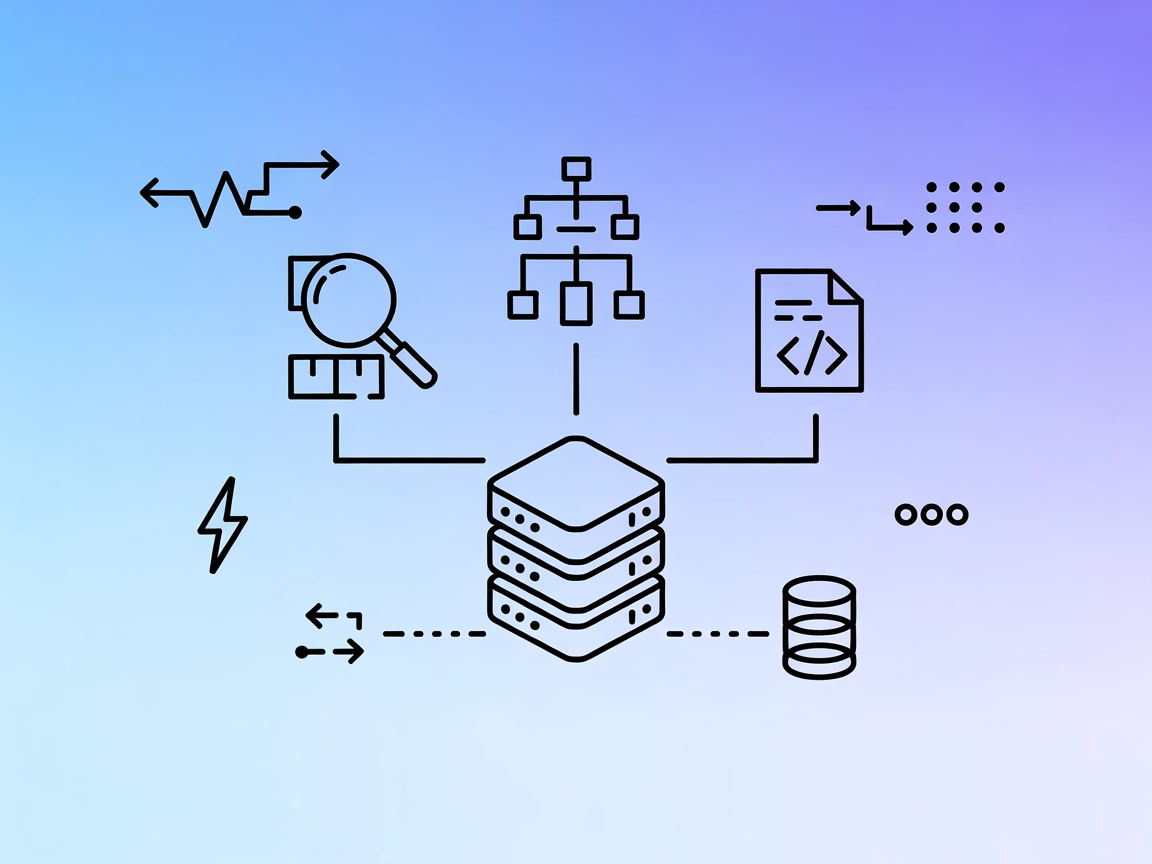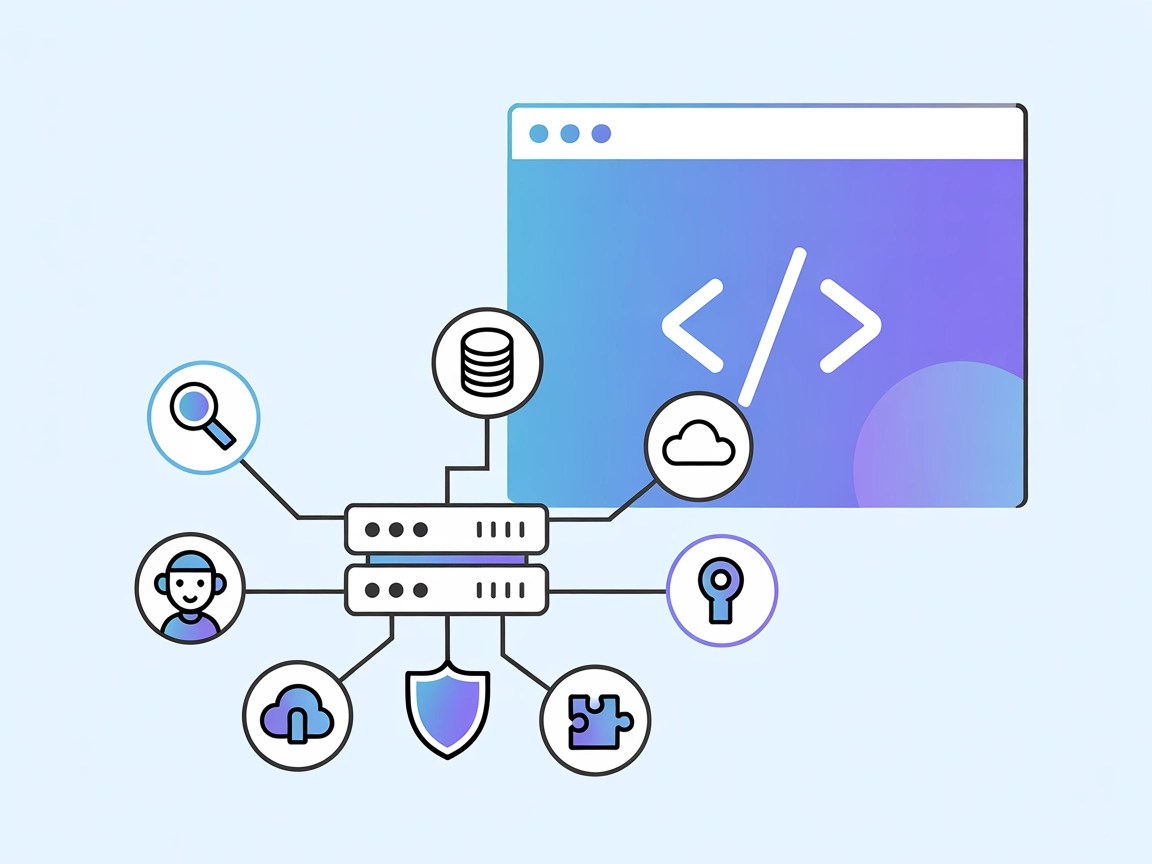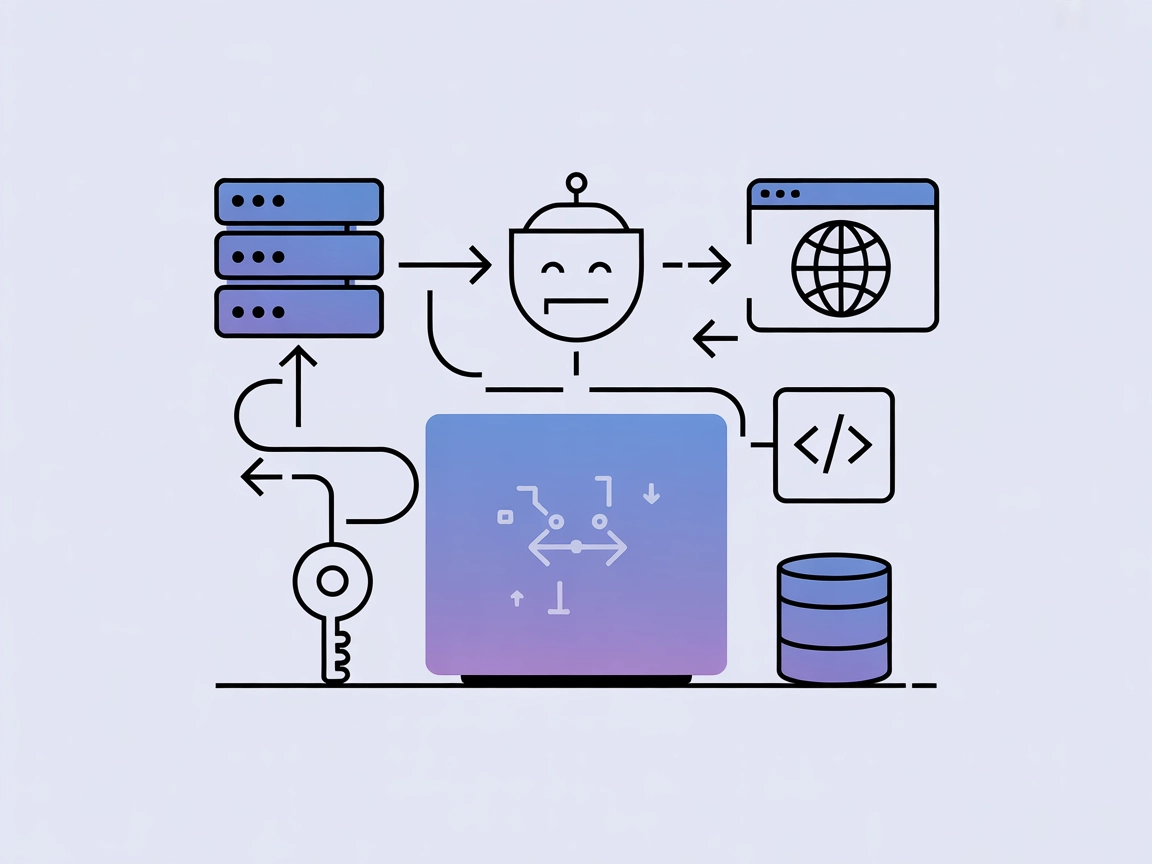
GraphQL Schema MCP Server
The GraphQL Schema MCP Server empowers AI assistants and developers to explore, analyze, and document GraphQL schemas programmatically. With a suite of robust t...

Expose and interact with any GraphQL API as a set of dynamic tools inside FlowHunt and other MCP-compatible platforms. Ideal for rapid integration, prototyping, and workflow automation.
FlowHunt provides an additional security layer between your internal systems and AI tools, giving you granular control over which tools are accessible from your MCP servers. MCP servers hosted in our infrastructure can be seamlessly integrated with FlowHunt's chatbot as well as popular AI platforms like ChatGPT, Claude, and various AI editors.
MCP GraphQL is a Model Context Protocol (MCP) server designed to provide a standardized interface for interacting with GraphQL APIs. By introspecting a target GraphQL endpoint, it automatically exposes each available GraphQL query as a dedicated MCP tool, enabling AI assistants and developers to seamlessly interact with external GraphQL data sources. This facilitates tasks such as database queries, data retrieval, and integration with third-party services directly through an MCP-compatible workflow. MCP GraphQL handles tool parameter mapping, dynamic JSON schema generation, and authentication (including Bearer, Basic, or custom headers), all without requiring manual schema definition. Its primary goal is to streamline development workflows by making GraphQL APIs accessible and actionable for AI-powered assistants and human users through a unified protocol.
No prompt templates are mentioned in the provided materials.
No explicit MCP resources are described in the provided documentation.
mcp-graphql via pip or use uvx as needed.mcpServers section:"mcpServers": {
"graphql": {
"command": "uvx",
"args": ["mcp-graphql", "--api-url", "https://api.example.com/graphql"]
}
}
"mcpServers": {
"graphql": {
"command": "uvx",
"args": [
"mcp-graphql",
"--api-url", "https://api.example.com/graphql",
"--auth-token", "${GRAPHQL_TOKEN}"
],
"env": {
"GRAPHQL_TOKEN": "your-token"
}
}
}
uvx or mcp-graphql is available.mcpServers configuration:"mcpServers": {
"graphql": {
"command": "uvx",
"args": ["mcp-graphql", "--api-url", "https://api.example.com/graphql"]
}
}
"mcpServers": {
"graphql": {
"command": "python",
"args": ["-m", "mcp_graphql", "--api-url", "https://api.example.com/graphql"]
}
}
"mcpServers": {
"graphql": {
"command": "docker",
"args": ["run", "-i", "--rm", "mcp/graphql", "--api-url", "https://api.example.com/graphql"]
}
}
mcp-graphql using pip or uvx.mcpServers section:"mcpServers": {
"graphql": {
"command": "uvx",
"args": ["mcp-graphql", "--api-url", "https://api.example.com/graphql"]
}
}
mcp-graphql installed.mcpServers settings:"mcpServers": {
"graphql": {
"command": "uvx",
"args": ["mcp-graphql", "--api-url", "https://api.example.com/graphql"]
}
}
Use environment variables for sensitive data such as tokens:
"mcpServers": {
"graphql": {
"command": "uvx",
"args": [
"mcp-graphql",
"--api-url", "https://api.example.com/graphql",
"--auth-token", "${GRAPHQL_TOKEN}"
],
"env": {
"GRAPHQL_TOKEN": "your-token"
}
}
}
Using MCP in FlowHunt
To integrate MCP servers into your FlowHunt workflow, start by adding the MCP component to your flow and connecting it to your AI agent:

Click on the MCP component to open the configuration panel. In the system MCP configuration section, insert your MCP server details using this JSON format:
{
"graphql": {
"transport": "streamable_http",
"url": "https://yourmcpserver.example/pathtothemcp/url"
}
}
Once configured, the AI agent is now able to use this MCP as a tool with access to all its functions and capabilities. Remember to change “graphql” to whatever the actual name of your MCP server is and replace the URL with your own MCP server URL.
| Section | Availability | Details/Notes |
|---|---|---|
| Overview | ✅ | Clear description in README |
| List of Prompts | ⛔ | No prompt templates mentioned |
| List of Resources | ⛔ | No explicit MCP resources listed |
| List of Tools | ✅ | Each GraphQL query is a tool, dynamically generated |
| Securing API Keys | ✅ | Environment variable example provided |
| Sampling Support (less important in evaluation) | ⛔ | Not specified |
A solid, practical MCP implementation for GraphQL APIs, but lacking explicit prompts/resources and does not mention sampling or roots. Good for tool exposure and ease of setup. Would rate 7/10 based on completeness and utility for developers.
| Has a LICENSE | ✅ (MIT) |
|---|---|
| Has at least one tool | ✅ |
| Number of Forks | 1 |
| Number of Stars | 7 |
MCP GraphQL is an MCP server that introspects a target GraphQL API and exposes each query as a tool, allowing seamless interaction and automation with GraphQL data sources via AI agents or developer workflows.
MCP GraphQL can automate database queries, third-party integration, rapid data exploration, automated reporting, and file/content management—anything exposed via a GraphQL endpoint.
Authentication for GraphQL APIs is supported via Bearer, Basic, or custom headers. Use environment variables in your configuration to securely provide tokens or keys.
No manual schema definition is required. MCP GraphQL introspects the GraphQL endpoint and dynamically generates the necessary tool parameters and JSON schemas.
Yes, MCP GraphQL is open-source and licensed under the MIT license.
Absolutely! Add the MCP server to your FlowHunt flow, configure it as described, and your AI agent will be able to access all GraphQL tools exposed by the server.
Streamline access to GraphQL APIs for your AI agents and development environment. Try MCP GraphQL on FlowHunt today, or book a demo to see it in action.

The GraphQL Schema MCP Server empowers AI assistants and developers to explore, analyze, and document GraphQL schemas programmatically. With a suite of robust t...

The Apollo MCP Server bridges AI assistants with GraphQL APIs, exposing GraphQL operations as MCP tools. It enhances developer workflows by enabling AI-driven q...

The AgentQL MCP Server integrates advanced web data extraction into AI workflows, enabling seamless structured data retrieval from web pages via customizable pr...
Cookie Consent
We use cookies to enhance your browsing experience and analyze our traffic. See our privacy policy.